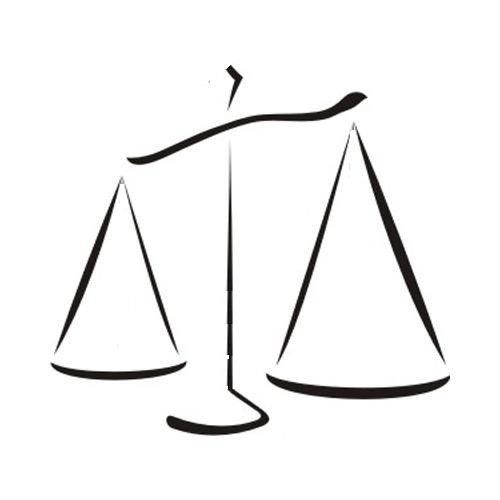Best Child Visitation Lawyers in North Macedonia
Share your needs with us, get contacted by law firms.
Free. Takes 2 min.
Free Guide to Hiring a Family Lawyer
Or refine your search by selecting a city:
List of the best lawyers in North Macedonia
About Child Visitation Law in North Macedonia
Child visitation laws in North Macedonia are primarily designed to ensure the well-being and best interests of the child post-divorce or separation. These laws govern the rights and responsibilities of non-custodial parents to maintain a relationship with their child. The legal framework emphasizes that both parents should continue to contribute to the child's development, regardless of marital status. Visitation rights are typically determined by family courts, taking into consideration various factors, including the child's age, preferences, and the parent-child relationship.
Why You May Need a Lawyer
Several situations may necessitate the assistance of a lawyer specializing in child visitation. These include disputes over visitation schedules, concerns about the child's safety during visits, difficulties in enforcing visitation rights, or modifications to existing visitation arrangements due to changes in circumstances. A lawyer can provide legal advice, represent your interests in court, and help mediate disputes to ensure that an amicable and fair arrangement is reached. Additionally, legal support may be needed to navigate complex situations such as international visitation or when a parent relocates.
Local Laws Overview
The Family Law of North Macedonia outlines the legal stipulations regarding child visitation. Key aspects of the law include the determination of visitation schedules often established by the court, enforcement mechanisms for visitation decisions, the capability to modify visitation arrangements as needed, and the consideration of the child’s best interests as paramount. The law encourages both parents to cooperate in maintaining a healthy relationship with the child, regardless of marital status, and provides provisions for grandparents or other relatives to seek visitation rights if it benefits the child.
Frequently Asked Questions
What factors does the court consider in granting visitation rights?
The court considers the child's best interests, the parent's relationship with the child, the child's age and preferences, and any history of abuse or neglect when granting visitation rights.
How can visitation rights be enforced if the other parent refuses to comply?
If a parent refuses to comply with court-ordered visitation, legal action can be taken to enforce the order. A lawyer can assist in filing a motion with the court to ensure visitation rights are respected.
Can visitation rights be modified?
Yes, visitation rights can be modified if there is a significant change in circumstances. This could include changes in the parent’s living situation, work schedule, or the needs of the child.
Will my child's preferences be considered in a visitation case?
The court may consider the child's preferences, especially if the child is of an age and maturity level where their opinion is deemed reliable. However, the final decision will always focus on the child's best interests.
Are visitation rights automatically granted to fathers?
Visitation rights are not automatically granted based on parental gender. Both parents have equal standing, and decisions are made based on the child's best interests.
What happens if one parent wants to move to another city or country?
If a parent wishes to move, the court may need to reassess the visitation arrangement to accommodate the new circumstances while ensuring the child's welfare and parental involvement.
Can grandparents request visitation rights?
Yes, grandparents can request visitation rights. The court will consider whether such visitation is beneficial for the child's well-being.
How long do visitation rights last?
Visitation rights remain valid until the child reaches adulthood or until the court issues an order modifying or terminating them based on new circumstances.
Is mediation required in visitation disputes?
While not always required, mediation is encouraged as it can help resolve disputes amicably and avoid the need for lengthy court proceedings.
Can visitation rights be denied?
Visitation rights can be denied if there is substantial evidence that visitation would be harmful to the child's health or safety.
Additional Resources
Those seeking legal advice on child visitation in North Macedonia may find the following resources helpful:
- The Ministry of Labor and Social Policy provides information and support regarding family law matters.
- Local family law attorneys offer specialized legal assistance in child custody and visitation cases.
- Legal clinics and NGOs often provide pro bono services or guidance for those unable to afford private legal counsel.
Next Steps
If you need legal assistance regarding child visitation, consider consulting with a family law attorney m licensed in North Macedonia. Gather documentation related to your situation, such as court orders, communication with the other parent, and any evidence pertinent to the visitation issue. A preliminary consultation will help assess your case and outline the legal options available to you. Engaging with mediation services may be a preliminary step before pursuing court intervention, offering an opportunity to resolve disputes in a less adversarial setting.
Lawzana helps you find the best lawyers and law firms in North Macedonia through a curated and pre-screened list of qualified legal professionals. Our platform offers rankings and detailed profiles of attorneys and law firms, allowing you to compare based on practice areas, including Child Visitation, experience, and client feedback.
Each profile includes a description of the firm's areas of practice, client reviews, team members and partners, year of establishment, spoken languages, office locations, contact information, social media presence, and any published articles or resources. Most firms on our platform speak English and are experienced in both local and international legal matters.
Get a quote from top-rated law firms in North Macedonia — quickly, securely, and without unnecessary hassle.
Disclaimer:
The information provided on this page is for general informational purposes only and does not constitute legal advice. While we strive to ensure the accuracy and relevance of the content, legal information may change over time, and interpretations of the law can vary. You should always consult with a qualified legal professional for advice specific to your situation.
We disclaim all liability for actions taken or not taken based on the content of this page. If you believe any information is incorrect or outdated, please contact us, and we will review and update it where appropriate.
Browse child visitation law firms by city in North Macedonia
Refine your search by selecting a city.









